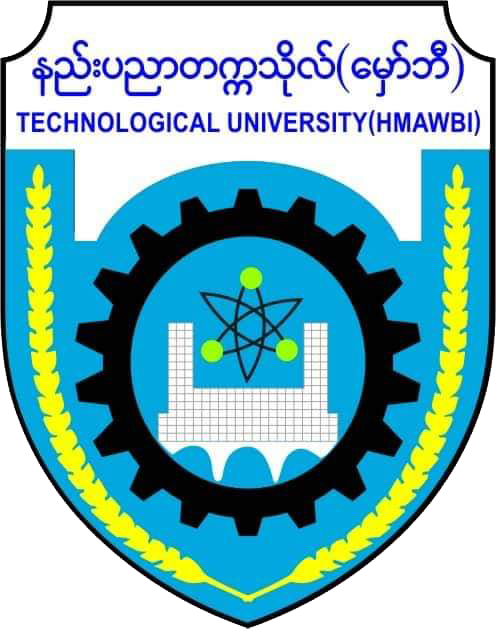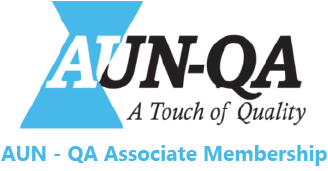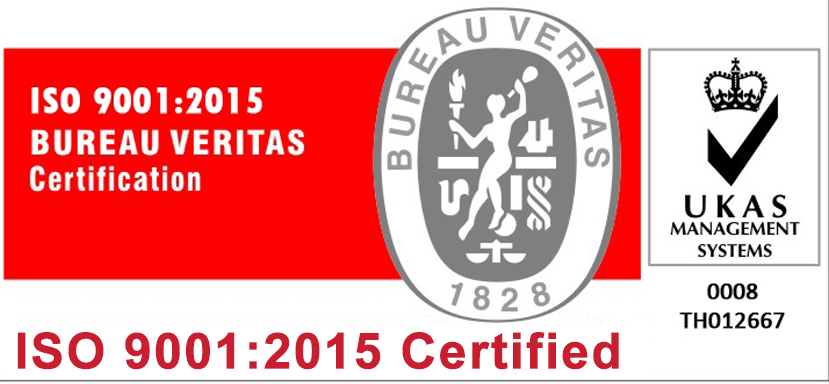
Technological University (Hmawbi)






Mechanical engineering is the discipline that applies the principles of engineering, physics and material science for the design, analysis, manufacturing and maintenance of mechanical systems. We provide our students opportunities to engage in experiments, design work, project work, industrial training seminar and team work to enhance the learning process that is so vital for a holistic engineering education.Mechanical engineers create and develop mechanical systems in the areas of
.Renewable Energy
.Thermal Engineering
.Manufacturing Engineering
.Solid Mechanics
.Fluid Mechanics
Graduate Attributes
PROGRAMME EDUCATIONAL OBJECTIVES (PEOs)
1 State the vision and mission of the IHL and/or faculty.
Vision of the University:
To become internationally recognized, high-ranking university that nurtures highly qualified Engineers and Architects who are needed in building the Nation, Myanmar.
Mission of the University:
Fostering our students with strong desire in conducting social activities and intellectually stimulating to qualified Engineers Architects who understand professional ethics well and creating innovative academic environment for all-around development of community.
To produce the competent engineers and researchers through quality education.
Mission of the Department
The mission of Department of Mechanical Engineering is to offer quality education that gives them knowledge for professional practice and a career of lifelong learning, prepare the students for their role as engineers in society with an awareness of environmental and ethical values.
2 List the PEOs and state where they are published or publicised.
The Programme Educational Objectives are formulated in such away as to describe and target probable and possible professional and career growth accomplishments for the graduates of the MechanicalEngineering programme that are achievable and measurable a few years after graduation.
2.1 Programme Educational Objectives (PEOs):
The Department of MechanicalEngineering has established the following objectives:
Objective 1: Produce graduates with broad based engineering sciences and fundamental of mechanical engineering to solve mechanical engineering problems and competencies in mechanical engineering design with creativity and innovation.
Objective 2: Produce successful and productive engineers with skills in faithful, communication, management, teamwork and leadership to their relevant profession.
Objective 3:Produce graduates who practices professional ethics with moral values in all areas of mechanical engineering and is committed to life-long learning.
Each of the 3 PEOs has direct Assessment Indicators (AIs) to measure the
graduates' achievement of PEOs respectively, as listed below:
PEO 1 - Technical Competence
PEO 2 - Communication Skills/ Leadership
PEO 3 - Professional Ethics/ Lifelong Learning
Moreover, the achievement of the programme’s PEOs by the graduates is made feasible through the successful attainment and measurement of the Graduate Attributes (GAs) which are formulated to ensure full coverage of all measurable attributes pertaining to the Mechanical Engineering programme students’ abilities and skills acquired during their study period at the University.
The programme educational objectives are published and placed for public display at the following locations:
Table C1 describes activities carried out by the University and Department in order to achieve and maintain consistency of the Programme EducationalObjectives with the University’s Vision and Missions.
Table C1:
The University’s Vision, Mission and Programme Educational Objectives.
|
TU(Hmawbi)’s Vision is to become internationally recognized, high-ranking university that nurtures highly qualified Engineers and Architects who are needed in building the Nation, Myanmar through thetraining the human resource developments for local needs mission.
|
|
Description of defined PEOs and related activities of the University and Department:
The achievement and dissemination of excellence and advanced knowledge and expertise are encompassed in the PEO 1 under the criteria “Technical Competence”. The assessment on students of TU(Hmawbi) assumes excellent experiences for applying fundamentals of sciences and mathematics. Focusing on engineering enhancement and scientific basics, engineering programme courses and elements are majoring to establish the technical confidence for each graduate individually.
Industrial training supervisors and industry advisors are regularly asked for their feedback and evaluation of TU(Hmawbi)’s current students technical abilities using PEO/GAs survey forms and during in person meetings.
Providing several talks by invited guests, speakers, external examiners and teaching staff, the department brings efficient knowledge and information to the students bridging with understanding the realistic expectations of potential employers. To realize the working scenarios, the students are encouraged to be attended and participated to talk.
Conducting laboratory experiments, report writing and oral presentations are starting from the second year study. The FYP projects are cooperated with the industrial entitles. Submitting own proposals and cooperating with the industrial sectors contribute to the participation of the students in research activities. Such activities broaden the knowledge of final year students inspiring them towards in pursuing a higher degree education.
As the number of undergraduate students keeps increasing for the past few years, so does a number of postgraduate students, many of whom are graduates of TU(Hmawbi) who along their career paths would contribute into transformation of the University into becoming an excellent centre for research.
Graduates attaining PEO 1 along their career paths will be recognised by the stakeholders who would attribute the graduates’ success to the University as an excellent centre for learning and teaching.
In addition, the university will be recognized as an excellent centre for research when significant number of innovative research projects, collaborations and scientific publications are generated
|
|
TU(Hmawbi)’s Vision is to become internationally recognized, high-ranking university that nurtures highly qualified Engineers and Architects who are needed in building the Nation, Myanmar through the development of our nation and society through the pursuit of engineering education mission.
|
|
Description of defined PEOs and related activities of the University and Department:
PEO 2is focused on the Communication Skills and Leadership, which are important attributes for a qualified engineer who is aspired to build the modern nation with high competency. Effective communication skills are necessary to improve personality development and carrier opportunities for the graduates. To reach the sufficient level, many courses offered by the programme emphasizing on the communication skills, written and verbal. Moreover, meetings and discussions with the industry advisors, research and industrial supervisors and invited guests from different industries and areas of interests are regularly organised to demonstrate importance of sound communication skills in life. These are especially for providing competent and honest services to the engineering profession.
The competent technical knowledge and sound communication skills are essential to enter global and local aspect of working environment. They support the graduates to become leaders in making decisions and planning for the new product.
Majority of the subjects in the programme include assessment of such academic tasks as preparation of written reports (laboratory reports, assignment reports, essay and final year project report) and oral presentations on various topics (assignment presentation, industrial training presentations). The requirements for the students’ presentation in terms of the scope and complexity increases towards the programme graduation to ensure that graduates who complete the programme attained the essential communication skills level. |
|
TU(Hmawbi)’s Vision is to become internationally recognized, high-ranking university that nurtures highly qualified Engineers and Architects who are needed in building the Nation, Myanmar through thehigh international standing and universal values in our beliefs mission.
|
|
Description of defined PEOs and related activities of the University and Department:
Ethical aspects of the graduates, their behaviour and daily actions are essential components of the firm attitude formation that may last throughout the lifetime and determine one’s life successes and failures. PEO 3 is focused on the aspects of Professional Ethics and Lifelong Learningthat are reflected and cascaded to the course level of the programme covering engineering and humanity subjects.
Through conduction of various academic activities, students follow proper responsible ethical and moral values from the start of their lives; and continue to learn more regardless of the chosen path to become better person/professional and improve own and other people’s lives as part of holistic development of individuals. Distribution of specific assignments within a specific course usually includes components that would motivate students to demonstrate their moral and ethical attitude. Recognition and realisation of the importance of the moral code and ethics by the students provides certain assurance.
It is also emphasised in all offered courses that continuous enhancement of current skills and acquisition of new skills as well as self-motivation to learn more will lead the graduates towards greater achievements along their career paths. In addition, involvement of the students into multidisciplinary projects/assignment encourages and stimulates them to strive for more knowledge outside their specialisation and prepares future graduates for work in multidisciplinary environments applying high ethical standards and participating in the sustainable development for betterment of all humankind.
|
3.2 Description of how the Programme Objectives relate to the Stakeholders’ requirements
The following is the list of stakeholders contributing to the programme development:
Table C2 provides details on the involvement of the stakeholders and their feedback on the process of Programme Educational Objectives formulation and achievement.
Table C2: Description of Stakeholders Involvement
|
No. |
Stakeholders |
Activities at the University and Department |
|
1 |
Engineering Education Accreditation Committee (EEAC) |
To realize the basic requirements of engineering programme accreditation, academic staff is instructed through conduct of:
Available documents: EEAC manual, Guidelines, OBE training, training on accreditation requirements, Self-assessment reports, departmental meeting minutes are available on Department. |
|
2 |
Industry Advisory Panel (IAP) |
Industry Advisory Panel (IAP) meetings
Every engineering programme appoints up to three Industry Advisors for a term of three years and a maximum of two terms to serve. Thereafter a new Industry Advisors will be appointed.
The general IAP meetings involve industry advisors of all engineering programmes which include session devoted to the specific programme where feedback regarding the performance of the graduates and issues related to the programme quality improvement and achievement of the PEOs are discussed.
Also, industrial supervisors provide their feedback on the performance of the existing students that will be collected using GAs/PEO survey forms distributed and collected during industrial visitation period by the lecturers.
Available Documents: Minutes of the Industry Advisory Panel (IAP) meetings are kept atthe Department.
|
|
3 |
External Examiners (EE) |
Available Documents: External Examiners’ Reports; minutes of departmental meeting with EE available are kept at the Department.
|
|
4 |
Departmental Members
|
Discussion of the issues related to the academic curriculum, students affairs and facilities management and necessary actions for continual quality improvement of the Programmes are carried out at the meeting of the various Departmental Committees conducted regularly, majority on monthly basis:
Available Documents: Minutes of various meetings are kept at the departments.
|
|
5 |
Students |
The participation of the students in the programme’s development and improvement is ensured through conduct of the following surveys, feedback from which is discussed at the respective departmental and faculty level committees:
Available Documents: Minutes of various committees meetings and survey data are kept at the departments.
|
|
6 |
Graduates/ Alumni |
Alumni Surveys are regular conducted by Department in order to collect data related to the achievements of the graduates and feedback on the strengths and weaknesses of the Programme:
Available Documents: Survey Forms kept at the department |
4. Describe the definition of PEO elements / performance indicators, achievement criteria, and performance targets.
Programme Educational Objectives (PEOs) are specific statements/goals consistent with the mission and vision of the IHLs, are responsive to the expressed interest of programme stakeholders, and describe the expected achievements of graduates in their career and professional life a few (3 to 5) years after graduation.
5. Describe the processes used to establish / formulate, define elements / performance indicators, setting achievement criteria and performance targets, and review the PEO statements and Describethe extent to which the programme’s various stakeholders are involved in the processes. This includes describing the tools used in the processes (survey, meetings, interviews, etc.) and frequency of activities and timelines.
Components of the process establishing Programme Educational Objectives:
Table C3 describes how each of the stakeholders contributes to the matters related to the Programme Educational Objectives and the corresponding evidences available to support the claim.
Table C3: Contribution of the stakeholders into the process of Programme Educational Objectives formulation.
|
Stakeholder |
Description of the contribution from the stakeholders to the Programme Educational Objectives |
Available Evidences |
|
Engineering Education Accreditation Committee (EEAC) |
|
EEAC Manual February 2018 |
|
Industry Advisory Panel |
|
Survey forms filled up and returned by industry advisory panel members and industrial supervisors (during industrial training visitation) |
|
Academic Staff |
|
|
|
External Examiner |
Provide comments on the academic content of the programme and the Programme EducationalObjectives. |
External examiner’s report. |
|
Students |
Provide comments and suggestions to the University on the quality of teaching and appropriate use of available resources to facilitate promotion and prospective achievement of the Programme Educational Objectives.
|
|
The academic programme is designed to incorporate components of various skills development to ensure that students develop all necessary basic skills and are able to begin their professional careers at certain competency level and able to continue enhancing their skills and abilities along their career paths. The following activities are carried out by the University and the Department to ensure the achievement of the Programme EducationalObjectives:
Every subject in the Programme is reviewed regularly by the course coordinator (lecturer) of the subject. Any major new development in the area relevant to a specific subject is considered and discussed at the CDC meeting; upon agreements, specified changes are incorporated into the syllabus of the subject and final approval is granted by the TU(Hmawbi)’s Senate. Lecturers are encouraged to revise their subjects regularly; however, they are also advised to approach this process responsibly and in advance to ensure proper transition.
(g) The students are also given opportunities to work in a group during laboratory sessions, assignment preparation and engineering competitions to stimulate in their development of leadership skills and sense of responsibility as team players.
(h) The Faculty and department regularly organise engineering seminars, workshops and talks engaging the experienced academic staff and inviting professional engineers and guest speakers from various industries, academic and research organisations and institutions of national and international significance. Students actively participate in such events and they are encouraged to be proactive in finding out more about potential areas of their interests. The invited guests often suggest and offer placements for industrial training to the students; they also initiate and support organisation of field trips and industrial visits to the students. The invited parties openly share their views with the students, particularly regarding skills and requirements of the industry applicable to the graduates.
|
|
(i) The University and Department encourage students to participate in the Engineering Competitions and provide financial support to the students who were selected for the competition following the established Standard Operating Procedure (SOP) involving Department of Student Affairs (DSA).
(j) The Department regularly invites professional engineers, member of the professional engineering bodies to explain to the students about the importance of being actively involved in the activities organised by professional institutions. The invited speakers enlighten the students about the importance of lifelong learning in order to become senior engineer or manager and acquire qualification of professional engineer or chartered engineer.
6. Describe the processes used to evaluate the level of achievement of the PEOs. This includes describing graduates/alumni database, tools (survey, meetings, interviews, etc.) and frequency of activities and timelines.
Feedback from various stakeholders is used for the evaluation of the Programme Educational Objectives involving the following processes:
In order to directlymeasure achievement of the Programme EducationalObjectives, the Department has recently initiated revision of alumni survey and development of a rubric for it.
.
7. Describe how the feedback and results obtained from the above processes are being used for the CQI of the programme.
CQI strategies has been performed in not only the current processes but also future plans.
8. Describe the extent to which the programme’s various stakeholders are involved in these processes.
Table C4 describes how each of the stakeholders contributes to the matters related to the Programme Educational Objectives and the corresponding evidences available to support the claim.
Table C4. Contribution of the Stakeholders into the Process of Programme
Educational Objectives Formulation
|
Stakeholder |
Description of the contribution from the stakeholders to the Progrmme Educational Objectives (PEO) |
AvailableEvidences |
|
Engineering Accreditation Council |
1. Providing guidelines regarding the engineering programme accreditation. |
Engineering Education Accreditation Manual February, 2018 |
|
Industry Advisory Panel |
1. Outline important current and potential trends observed in the industrial and other sectors that should be reflected in the PEO. 2. Review and provide comments on the drafted PEO. 3. Highlight additional skills and other aspects that should be incorporated into the PEO. |
|
|
Academic Staff |
1. Review and discuss comments given by industry advisory panel and industrial supervisors. 2. Publish the PEO. 3. Provide briefing to the students on the PEOand attributes that would ensure theirachievement. 4. Explain to the students the linkages between PEOand Graduate Attributes and Course outcomes. |
1. Departmental meetings minutes 2. University website 3. Unit Matrix Attributes files (xls) showing the linkages between PEOand Graduate Attributes.
|
|
External Examiner |
Provide comments on the academic content of the programme and the PEO. |
External examiner’s report. |
|
Alumni |
Evaluate the achievement of PEO and provides comments |
Alumni survey forms |
|
Students |
Provide comments and suggestions to the University on the quality of teaching and appropriate use of available resources to facilitate promotion and prospective achievement of the PEO.
|
Student Evaluation forms
|
9. Describe CQI strategies to be implemented in relation to PEOs.
CQI strategies has been performed in not only the current processes but also future plans.
10. Self –assess on programme performance related to PEOs based on the following scale.
Satisfactory